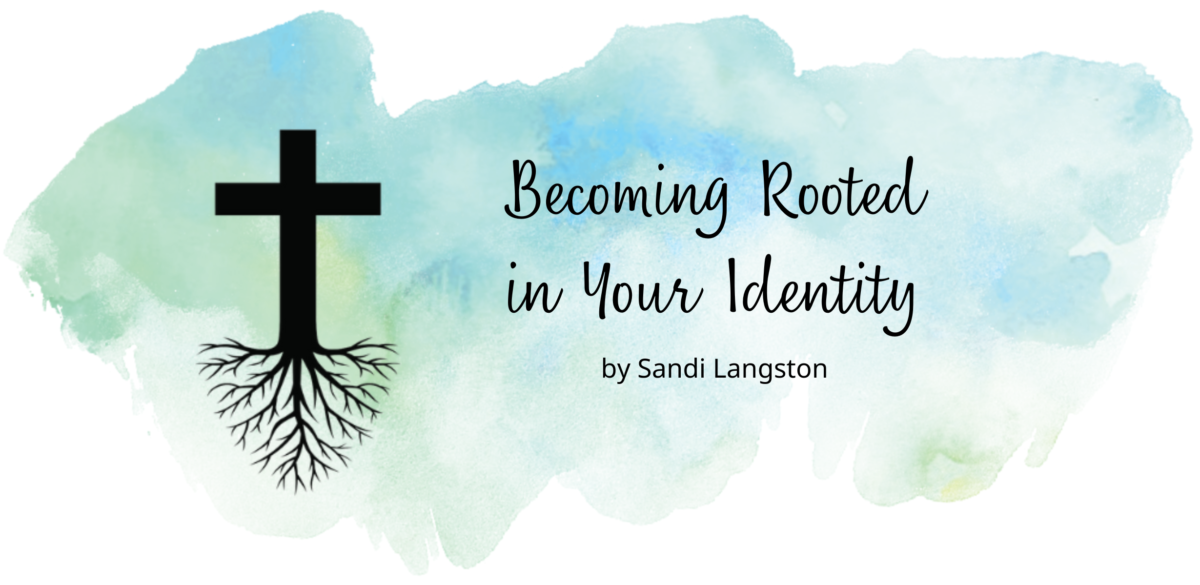“Mom, that guy is a baddie because he drove through a red light. He doesn’t love Jesus.” Sometimes I envy the black-and white thinking of my almost-four-year-old. If only our status as sinner or saint was as simple to figure out.
In my son’s thinking, I am a goodie – I’m his mom, after all. But what happens when I run a red light, as I unwittingly did last week? Does that make me a baddie? At my son’s age, he needs mutually exclusive categories. In his world, I can’t be both a goodie and a baddie! As he matures, he will begin to appreciate more complexity and come to understand that a goodie can do bad things, and vice versa.
We make the same mistake when it comes to defining ourselves as sinners or saints. Clearly we are not perfect saints, so in our immature understanding we reason the only remaining option is that we are sinners. We accept the label of sinner and live condemning ourselves over the guilt of not reaching an impossible standard of perfection.
But as those who follow Jesus, we are not either saints or sinners: we are both! This is one of the many paradoxes in Christianity. Without understanding it is a paradox, we become conflicted and confused inside, mistake our identity, and live according to only half of the truth.
A Paradox
In a paradox, two truths seem to contradict. We would think that the reality is simple: if one statement is true, it should mean the other is false. But this is not so with a paradox. In a paradox both statements are true, and to begin to understand it we must try to grasp both truths. Instead of a clear, black-and-white understanding, we will find that a world of color opens before us.
The Bible is full of paradoxes. We marvel that Jesus is both lion and lamb. He is son of God and son of man. Those who are first will be last, and vice versa, and the least servant of all is the greatest of all. That we Christians are both sinners and saints is another of these biblical paradoxes.
We are Sinners
I don’t need to remind us that we are sinners. That truth is all too familiar. We know our shortcomings, try to hide our sins, and feel ashamed of our temptations and idols. We try all sorts of things to alleviate guilt over sin.
To be human is to be a sinner, whether we are Christian or not (though there is one exception: Jesus!) For true Christians, being a sinner is not our primary identity. It is only one half of the paradox.
Note: “sinner” is not the same as “wicked” or “evil” or “foolish.” We can love Jesus and be a sinner (we all are), but punishment is reserved for the wicked – the baddies, those who have not put their faith in Jesus.
“Whoever believes in him [the Son of God – Jesus] is not condemned, but whoever does not believe stands condemned already because he has not believed in the name of the God’s one and only Son,” John 3:18.
What is a Saint?
Contrary to popular belief, saints are not perfect people. All who regard Jesus as their Lord are saints. Paul addressed some of his letters to “the saints, the faithful who are in Christ Jesus” (see Ephesians 1:1).
The moment we decide to make Jesus our Savior and our Lord, we become saints. God forgives us and makes us new. Our sin-stained selves are cleansed and clothed in robes of Christ’s righteousness. We become part of the Church, the body of Christ. We would not be able to be “in Christ” if we were still blemished by sin. Sainthood is attained by our position in Christ, not our actions.
There is some confusion around the idea of being a “saint” for two reasons:
- The Catholic Church gives the title Saint to some Christians who have devoted themselves extraordinarily to service. But together with the wider church, the Catholic church considers every Christian part of the “communion of saints.” If I understand the Catholic view correctly, the saints on earth (all believers) partake partially in what those saints in heaven experience fully.
- People often think of a saint as someone who is morally perfect or sinless (or close), but this definition is not aligned with the biblical use of saint. Biblically, saints are not perfect or sinless. It is their faith in Jesus Christ that distinguishes them from non-saints. No Christian is perfect, but every true Christian is a saint. i.e. all Christians believe in Jesus as their Lord and Savior. That is a fact, for that is the defining belief of Christians.
Our identity as saints is not under jurisdiction, though it takes a shift in our understanding to accept this truth. A saint is someone who is set apart for God. We have consecrated or “dedicated ourselves to the worship and service of the one true God as revealed through his Son, Jesus Christ.”[i] We are on a journey of sanctification and hopefully less easily tempted into sin, though we will not be sinless until heaven.
We are Saints and Sinners
I do not understand how we can be both saints and sinners at the same time. (We don’t switch between them, as though our identity was based on our actions.) The Bible says we are earthen jars of clay filled with the treasure of God Himself. We are undeserving yet clothed in Christ’s righteousness. When we are weak, we are strong – by the power of God. We who are infinitesimal and inconsequential in this enormous universe are extremely precious because God loves us – so much that Jesus died to reconcile us to the Father.
Dear Christian, don’t forget you’re a saint! You are a “goodie,” even though you sometimes do bad things. The difference is that goodies repent for their sins, whereas the baddies don’t. Though we Christians sin, Jesus already paid the penalty of our sins (death). We have a restored relationship with God. Let’s live with that half of the paradox in mind, and then humble ourselves as recipients of God’s grace when we act as sinners.
——————–
PS. The concept of being a saint is closely related to being all Christians being holy. For a great visual explanation of the theme of holiness in the Bible, see the Bible Project.
[i] https://www.biblestudytools.com/dictionary/saints/




